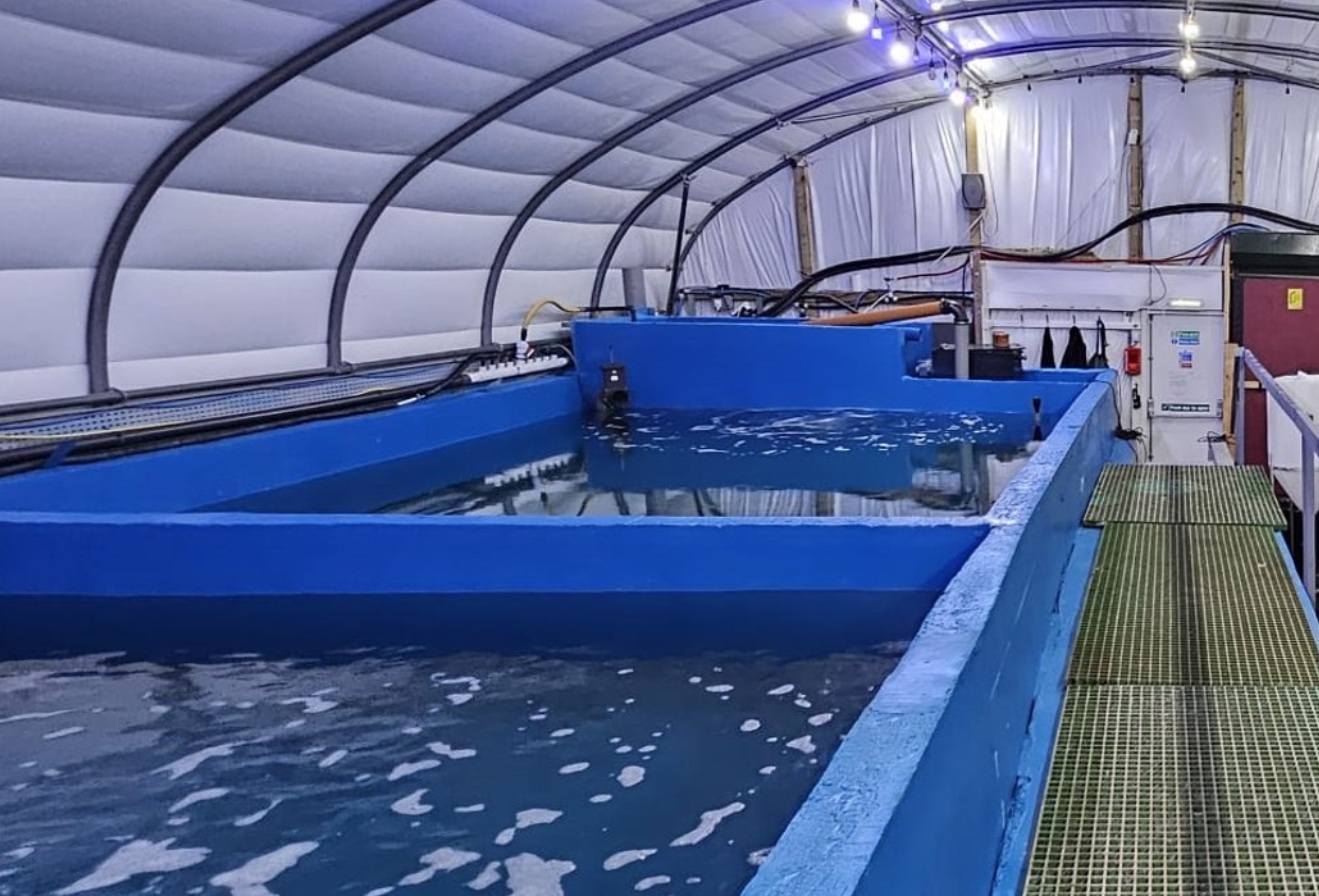Prawn farms on UK farmland could power seafood shake-up

Indoor king prawn farms built on UK farmland could spark a quiet revolution in sustainable food production, researchers say, offering farmers a new diversification opportunity while reducing reliance on environmentally damaging imports.
King prawns are already among the UK’s most popular seafoods, yet almost all are imported, often from farms linked to ecological degradation overseas.
Scientists behind the UK Sustainable King Prawn Project (UKSKPP) believe British producers could grow their own – and do so more sustainably – using indoor closed-system tanks powered by renewable energy.
The team says the model offers efficient, low-impact aquaculture that can create rural jobs, strengthen the farm economy and provide consumers with fresher home-grown prawns.
Producing a tonne of king prawns in these systems uses 50 times less land than farming the same quantity of pork or beef, potentially freeing up agricultural land for woodland planting, biodiversity projects and other nature-positive management.
Professor Ian Bateman OBE said the approach shows that food production and environmental restoration need not be in conflict. “King prawn production yields huge quantities of highly nutritious food on small areas,” he said, giving farmers a chance to improve the environment “without reducing food output.”
Researchers, policymakers and industry leaders are gathering at the University of Exeter today (Friday 14 November) to explore how land-based aquaculture could help reshape the UK’s seafood supply.
Professor Rod Wilson, who leads the UKSKPP, said sustainable aquaculture must play a central role in future food planning.
“If we are going to feed our growing population over the coming decades – while simultaneously reducing our carbon emissions and reversing biodiversity loss – sustainable aquaculture has to be a major part of food production.”
The project aims to build a new sector for home-grown prawns using closed systems designed so that “nothing is wasted.”
With king prawns worth more than £300 million annually to UK retailers, even replacing a portion of imports could support rural economies while cutting the carbon footprint of seafood supply. Researchers say prawns may be only the beginning, with potential for other species to be grown in similar systems.
Dr Robert Ellis said meeting rising protein demand sustainably is essential. He believes high-tech aquaculture on farms or in urban settings could “place the UK at the forefront of a sustainable seafood revolution.”
Dr Andrew Whiston, CTO of Rastech and co-founder of Eden Valley Prawns – the UK’s only commercial land-based king prawn farm – said the model has already demonstrated its viability.
“We’ve proved that king prawns can be raised and sold right here in the UK using only seawater, feed, and renewable energy,” he said, noting that the system requires “no antibiotics, no pesticides, no mangrove destruction and minimal food miles.”
However, researchers acknowledge that growth will depend on solving several challenges, including public perceptions of aquaculture, a skilled workforce, suitable regulation and the development of UK hatcheries. Energy use also needs to be carefully managed to ensure long-term sustainability.
The UKSKPP team is working with government and industry to address these barriers. If progress continues, researchers believe the UK could establish a world-leading prawn farming sector on its farmland.








